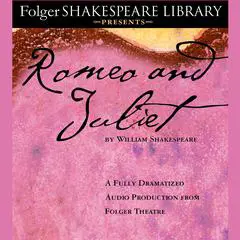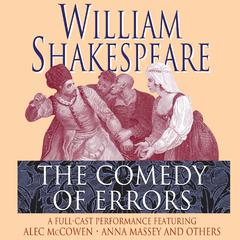 Play Audiobook Sample
Play Audiobook Sample
The Tempest Audiobook
 Play Audiobook Sample
Play Audiobook Sample
Quick Stats About this Audiobook
Total Audiobook Chapters:
Longest Chapter Length:
Shortest Chapter Length:
Average Chapter Length:
Audiobooks by this Author:
Publisher Description
Blackstone Audio is proud to present the Oregon Shakespeare Festival's 2014 production of The Tempest, Shakespeare's magical romantic comedy, directed by Tony Taccone. This stunning work of audio theater, fully dramatized with performances by the OSF cast, is a must-listen.
Rough magic and brave new worlds …
For twelve years, the exiled Duke Prospero has waited for this moment: old enemies have sailed too close to his enchanted island, and a mighty storm has forced them ashore. Now it's time to settle old scores and reclaim his former dukedom for his daughter, Miranda. Aided by supernatural powers, Prospero dispenses justice while overseeing the growing attraction between Miranda and the princely son of one of his foes. In Shakespeare's romance, sorcery and love transmute vengeance into humility and humanity, making it possible for all to return to a world made new by the power of forgiveness.
Download and start listening now!
“This Tempest reflects many of the values the festival holds dear: trusting veteran actors in key roles; emphasizing clarity of text; adding bold elements to freshen a masterpiece…The Tempest is about power and magic, sleeping and waking, revenge and forgiveness.”
— Oregonian
Quotes
-
“The Tempest is a drama about transformation. The presumed dead are restored to life, wicked individuals change for the better (most of them, anyway) and in the end, magic willingly gives over to the natural order of things.”
— New York Times -
“A dazzling display of theater and theatrics…The Tempest is a delicious mélange of sights, sounds, colors…a mesmerizing theater experience.”
— Herald and News
The Tempest Listener Reviews
Be the first to write a review about this audiobook!
About William Shakespeare
William Shakespeare (1564–1616), English poet and dramatist of the Elizabethan and early Jacobean period, is the most widely known author in all of English literature and often considered the greatest. He was an active member of a theater company for at least twenty years, during which time he wrote many great plays. Plays were not prized as literature at the time and Shakespeare was not widely read until the middle of the eighteenth century, when a great upsurge of interest in his works began that continues today.










































